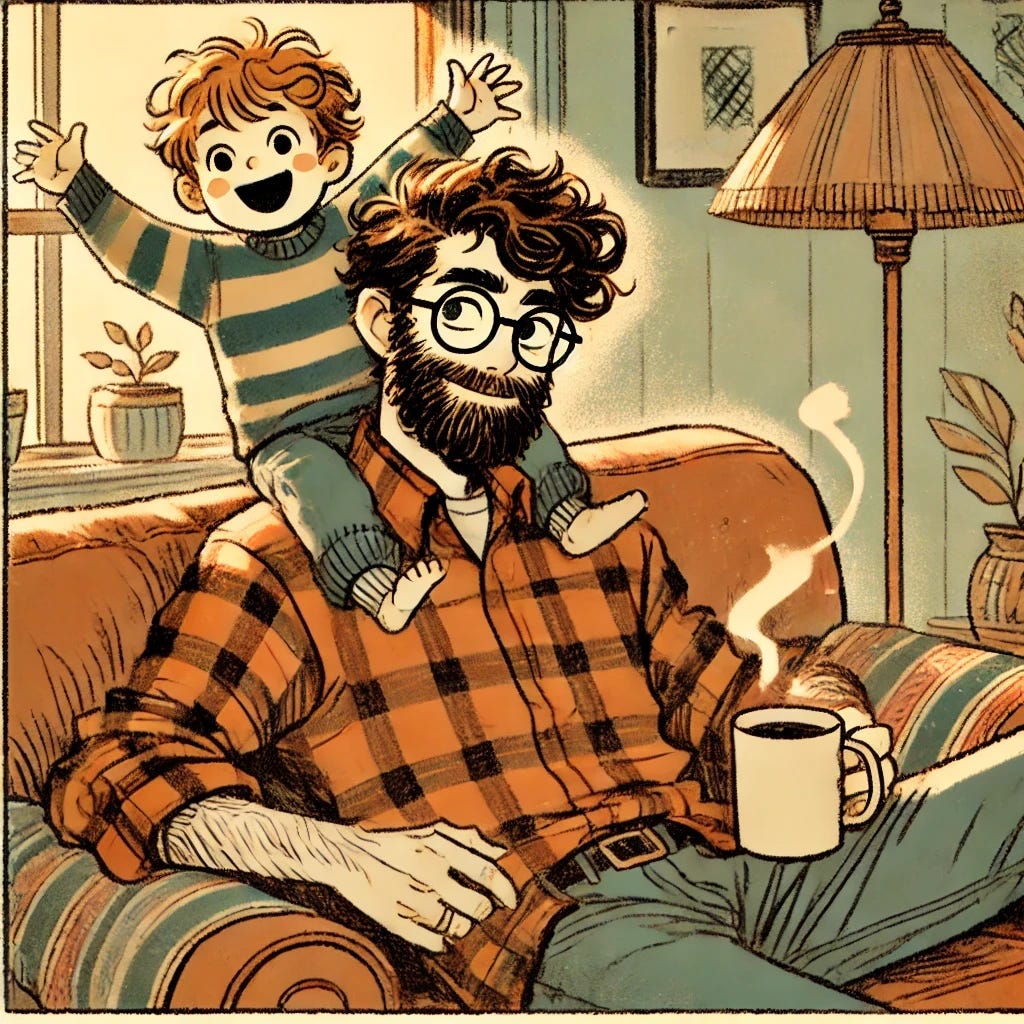5 More Parenting Lessons I Wish I’d Known Sooner
Lessons learned the hard way—and some of them just last week. Here are five tips that can help you grow along with your kids.
This past week, my entire family came down with the flu, and a winter storm closed my kids' daycare for three days. It was trying, to say the least, but every moment spent with my kids is a gift. Here are five more tips to build on the ones I shared last week—lessons I've learned over four years, and experienced applied in the past few days, during the chaos.
The best moments happen when you least expect it
Since moving to his big boy bed, my son frequently joins us during the night. I thought it would be an occasional thing, but I can count on one hand the nights he's slept through in his own bed. It’s frustrating, but I cherish it because I know I’ll miss it when it’s gone. Sometimes, the first thing I hear when I wake up is his soft whisper.
"Daddy... Daddy."
"What's up, buddy?"
"I love you."
These moments are priceless and happen more often than you expect. While we expect our best memories from special events, kids turn everyday moments into lasting memories.
Allow them to move at their own pace
Bluey is a fantastic show, and my wife and I are convinced it was created more for parents than kids. Our favorite episode is called "Baby Race." It centers on the struggle of wanting our kids to develop at the same pace—or faster—than the kids around them. It ends with the idea that we need to allow kids to develop at their own pace, both for their sake and for ours. I can't recommend it enough.
If you’re competitive, you’ll want them to hit milestones before their peers. But they won’t. Don’t let discouragement creep in. It'll happen. And when it does, there's a definite downside.
Watching my kids grow and move through stages has been bittersweet. On one hand, you want them to gain independence, but you miss the days when everything was new and they needed you more. Cherish each stage as if it will end tomorrow. And you'll miss it.
You don’t need to entertain them all the time
Kids need boredom to foster creativity and problem-solving skills, even if they don’t realize it.
Karen Gasper and Brianna Middlewood, researchers at Pennsylvania State University, discovered that people who embrace boredom tend to actively seek out activities that bring them satisfaction—similar to how happy individuals naturally gravitate toward fulfilling experiences.
"Boredom operates similarly to feeling happy or excited," Gasper said in an interview with Fast Company. "It results in you trying to approach something that, in this case, is more meaningful or interesting. It encourages people to explore because it signals that your current situation is lacking, so it’s kind of a push to seek out something new."
Dr. Teresa Belton, a visiting fellow at the University of East Anglia, compared two groups of children—those who spent significant time watching TV, and those who didn’t—and found that those with less screen time were more creative in writing and problem-solving.
"If the imagination is captured, then we're likely to want to copy it or imitate it in what we do," she said in a speech at TEDx Teddington. "But if our imagination is fired, then we will transform what we've experienced whether in real life or from the screen, and make it into something new."
Cultivate acceptance. You'll need it.
"You have power over your mind, not outside events," Roman Emperor and Stoic philosopher Marcus Aurelius wrote. "Realize this, and you will find strength."
I knew we’d lose a lot of personal time after having kids. Kids' needs, both emergent and routine, dominate your life, often at the most inconvenient times. I mentioned my son coming to our bed, but there are also sudden bouts of sickness, random hungry tummies, household disasters, spur-of-the-moment emotional outbursts, and countless other things that will upend even the best-laid plans.
For two years, I’ve been working to apply the concept of “radical acceptance.”
Radical acceptance means embracing reality as it is, without judgment. It stops wasting energy resisting the uncontrollable and helps you focus on moving forward. It’s an invaluable skill in parenting and in life.
Don't shame their expressions of emotion, even in public
I list this one last, but it might be the most important. Young kids have zero control or understanding of their emotions, and they will react to the most seemingly innocuous events with explosions, often when you least expect it. Your most important job is to regulate yourself and teach your child to do the same. Dr. Dan Siegel emphasizes that acknowledging and soothing children's feelings contributes to secure attachment and emotional resilience. When your child has a meltdown—whether at home, grandma’s, or the grocery store—remain calm, get on their level, name the emotion, and reassure them it’s okay. Doing so will teach them to accept and manage emotions rather than repress them, which will lead to a more happy and regulated adult.
Hey, fellow dads, comments on this post have been opened to everyone. What other tips would you share with your pre-dad self if you could?



